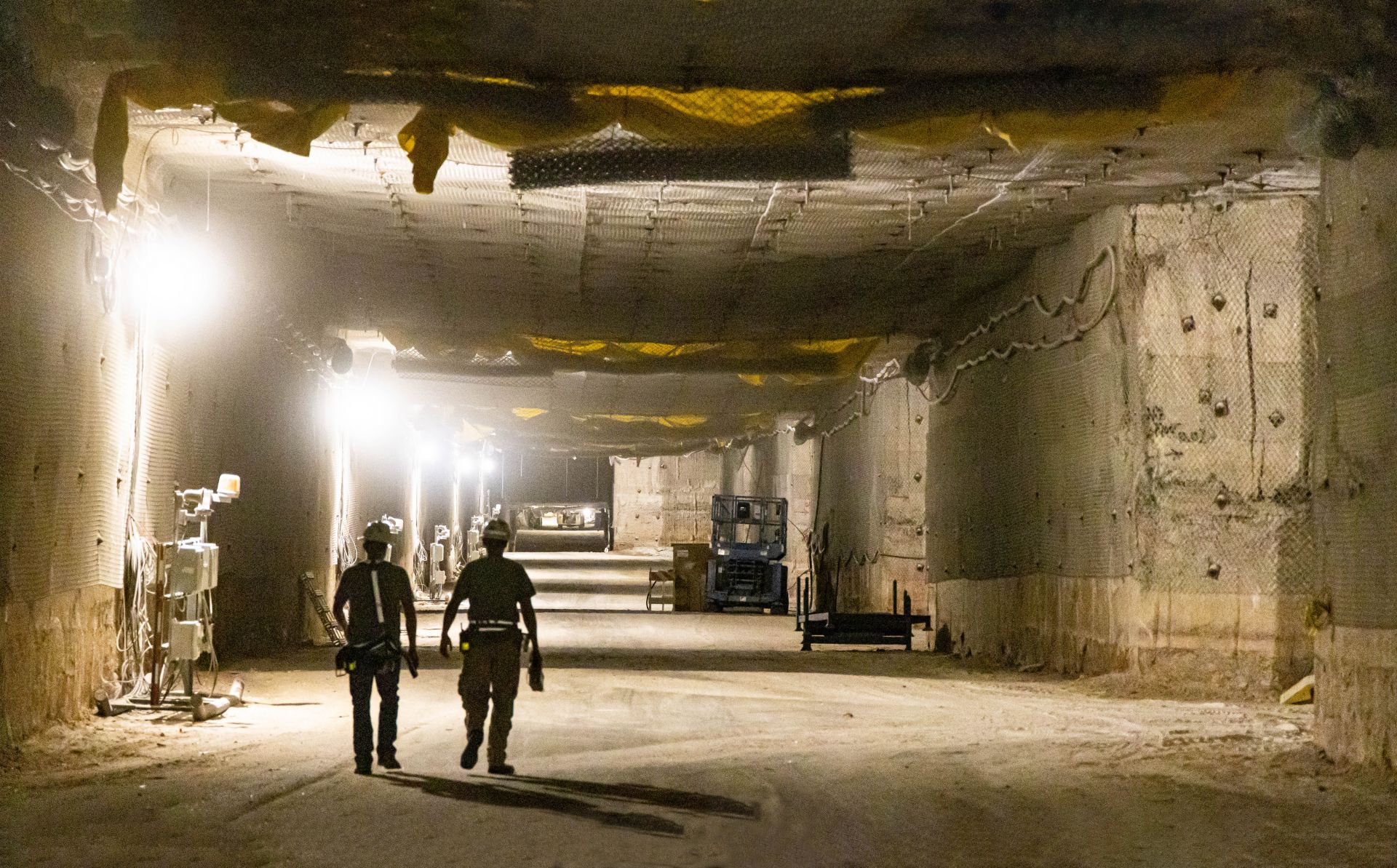Workers walk down an underground passageway at the Waste Isolation Pilot Plant transuranic waste repository in New Mexico. (Photo: DOE)
The American Nuclear Society coordinated an effort with eight nongovernmental organizations in asking Congress to update the Environmental Protection Agency’s generic standards for the safe, permanent disposal of spent nuclear fuel (SNF) and high-level radioactive waste.
Two workers walk down an underground passageway at the Waste Isolation Pilot Plant transuranic waste repository in New Mexico. (Photo: DOE)
While still lacking a deep geological repository for the permanent disposal of its commercial used nuclear fuel and high-level radioactive waste, the United States does have regulatory standards for geological nuclear waste disposal.
Having been written nearly 40 years ago, however, those standards are outmoded and lack transparency, according to a special committee of the American Nuclear Society, which has released draft recommendations on revising public health and safety standards for future geological repository projects in the United States.
ANS Standards Committee publishes new standard for light water reactor risk-informed, performance-based design
The new standard ANSI/ANS-30.3-2022, Light Water Reactor Risk-Informed, Performance-Based Design, has just been issued by the American Nuclear Society. Approved by the American National Standards Institute (ANSI) on July 21, 2022, the standard provides requirements for the incorporation of risk-informed, performance-based (RIPB) principles and methods into the nuclear safety design of commercial light water reactors. The process described in this standard establishes a minimum set of process requirements the designer must follow in order to meet the intent of this standard and appropriately combine deterministic, probabilistic, and performance-based methods during design development.
ANS flooding and seismic consensus standards assist the NRC and DOE in buttressing nuclear facility safety policies
April 2, 2021, 2:47PMNuclear NewsLeah Parks, Carl Mazzola, Jim Xu, and Brent Gutierrez A map of Japan highlighting the Fukushima prefecture.
March 11 will mark the 10-year anniversary of the Fukushima Daiichi event, when a 45-foot tsunami, caused by the 9.0-magnitude Great Tohoku Earthquake, significantly damaged the reactors at Japan’s Fukushima Daiichi nuclear power plant. In response to this event, the U.S. Nuclear Regulatory Commission took actions to evaluate and mitigate beyond-design-basis events, including a new requirement for the staging of so-called Flex equipment, as well as changes to containment venting and improvements to emergency preparedness. The U.S. Department of Energy also addressed beyond-design-basis events in its documented safety analyses.
Risk-informed and performance-based approaches to nuclear safety have saved money and improved safety for current reactors and have the potential to offer even greater benefits for advanced reactors.
June 26, 2020, 3:05PMNuclear NewsN. Prasad Kadambi, Edward Wallace, James O’Brien, and Robert Youngblood Since the 1980s, the nuclear power industry in the United States has worked to enhance the regulatory framework for nuclear facilities by making it more risk-informed and performance-based (RIPB). This has had some success in improving safety and reducing regulatory burden by focusing resources on the most risk--significant areas and allowing greater flexibility in choosing ways to achieve desired safety outcomes. However, there are further opportunities for the use of RIPB approaches in addressing current regulations and applying implementation tools, and in developing new RIPB regulations and advanced tools to further sharpen the focus on risk and performance outcomes.






